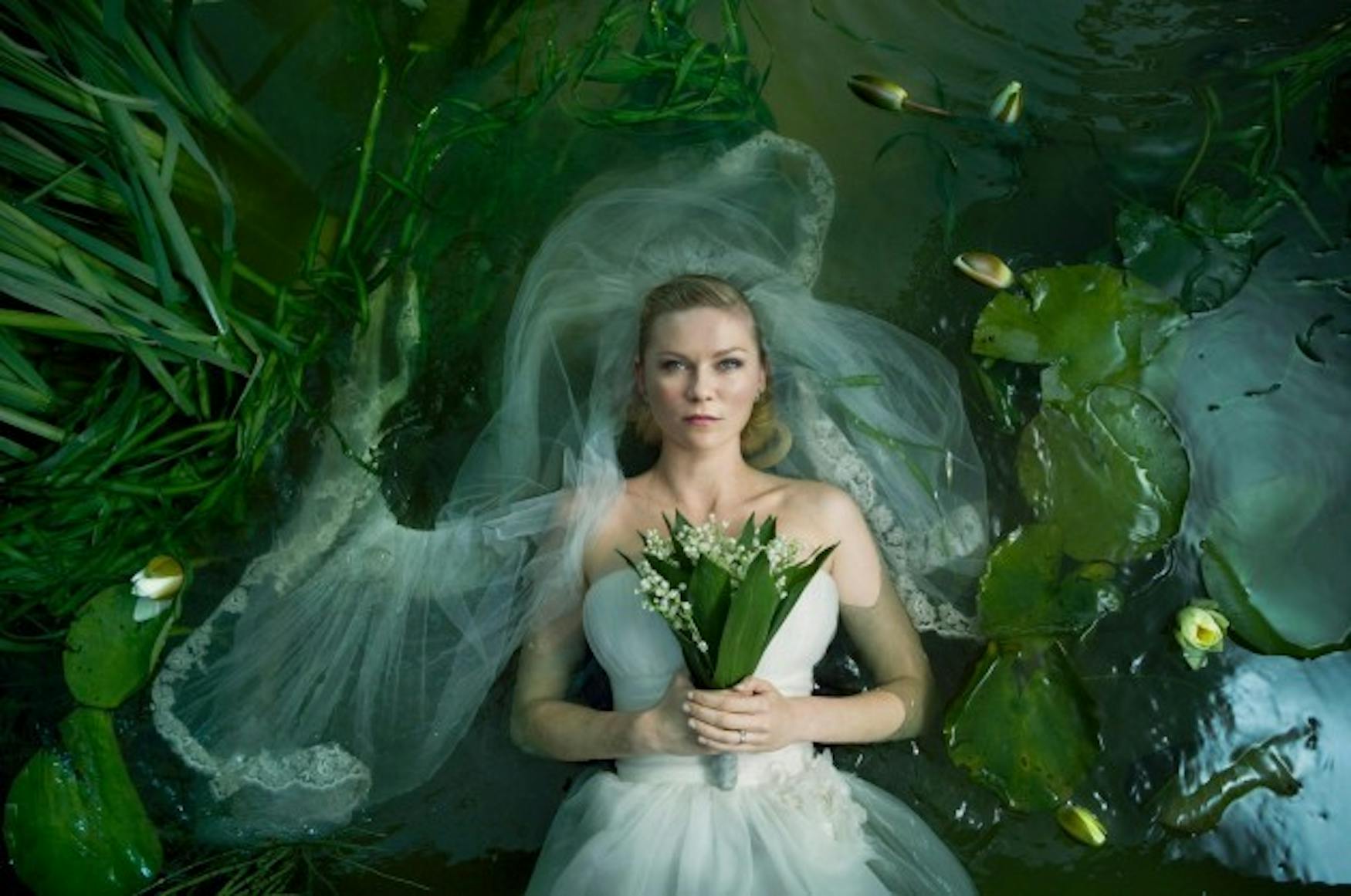Amid sadness, a world comes crashing down
Melancholia, written and directed by controversial director Lars Von Trier, is about coming to terms with death—not of individuals, but of the world as we know it. A seemingly morbid concept, centered around another planet hurtling towards Earth, Von Trier communicates the film in a vast, majestic and awe-inspiring way. Focusing more on character development than plot and traditional narratives, the movie runs less like a conventional movie and more like a piece of poetry.
The film focuses on two sisters, Justine (Kirsten Dunst) and Claire (Charlotte Gainsbourg), who are polar opposites of each other. While Justine is mysterious, introspective and accepting, Claire is sharp, nervous and intolerant. Emotions of both confidence and despair overtake them as they must confront Melancholia, the approaching planet that will soon hit Earth. The audience discovers how the opposing forces—Justine and Claire, planet Earth and the planet Melancholia—comes to resolution. This film is grand and ambitious, filled with sweeping music and quiet suspense, as the visually-impressive Melancholia determine the characters' fate.
The film opens with the extravagant wedding of Justine and Michael (Alexander Skarsgård). However, the wedding is not a celebration of love, but rather a gathering of the social elite. The guests are wrapped in their own ambitions and have taken the opportunity of the wedding to exploit their desires.
Justine trudges through her wedding, disturbed by nebulous longings. She seeks aid from her family, but they are no use. Their advice only reflects their own needs and troubles. Not even Justine's husband-to-be can understand her enigmatic suffering. He tries to comfort her with his own dream: their future life on an apple farm. In a movie that expresses itself more through action than dialogue, much is meant in few words. "Maybe we can hang a swing on one of the trees," he says, suggesting children. "Let's talk about it when we get there," she replies. The dialogue captures Michael's ignorance of Justine's needs, while raising the question of why Justine wants this wedding in the first place—perhaps a need for escape?
Claire adds to Justine's emotional trouble. "Sometimes, I hate you so much," Claire says, frustrated that Justine doesn't carry out the wedding as a happy bride.
So Justine is alone, struggling with her demons. She can only find peace in brief excursions during the wedding, taking comfort watching a mysterious red planet in the sky.
Trier works his film on juxtaposition and opposite doubles. Just as the juxtaposition of the grand wedding with depressed Justine communicates disorder, so does the second part of the film contrasts the first. Now, Justine is no longer with Michael. Silence occupies the mansion, inhabited only by Justine, Claire, her husband John (Kiefer Sutherland) and their son Leo (Cameron Spurr). Justine walks around in a dazed, yet conscious state. John and Claire seem to treat her as an inferior sister at the edge of madness. Then a fated presence steps in. Melancholia, the mysterious planet that Justine first saw, has grown significantly in size and threatens to collide with Earth. As they await the approach of Melancholia, they must confront their beliefs and fears.
The new planet creates a twist. The earlier wedding becomes meaningless against these greater matters. Melancholia inspires fear and fascination within the mansion. The roles are reversed. Now Claire suffers greatly, worrying what will be left for Leo if Melancholia hits Earth. She tries to fight this fate. Justine, however, is neither in a state of hope nor defeat. She rises above her circumstances, regains strength and accepts the end. She seems almost in love with Melancholia.
I was fascinated by the performances of the lead actresses. Dunst portrays Justine with great depth. The audience feels Justine's pain and need for something greater. Equally amazing, Gainsbourg plays Claire, a woman holding dearly onto her only son, living for him. These actresses can speak volumes without a word. They show something that is rare and beyond pain during a time of no tomorrow. Throughout most of the film, they are not in dialogue, but in action, executing daily tasks such as bathing, watching Melancholia in fear or awe—their performances are spellbinding.
The film honestly confronts this possibility: What if the world ceased to exist? What, then, is the meaning of life? The answer is told through the poetic structure of majestic images: a slow motion of a horse collapsing and Melancholia completely obliterating Earth. These images open the film. They map out the events of the film like fate.
Sounds also poetically structure the film. The prelude of Tristan und Isolde, an opera about the doomed fate of lovers, plays whenever the planet Melancholia emotionally affects Justine. The motif of the orchestral music works magically.
Many other motifs haunt the scenes, such as the cave that Leo constantly asks Justine to play in. The cave is an allusion to Plato's "Allegory of the Cave," a story of escaping a dark cave to see light and thus attain truth and enlightenment. But the cave they talk about here portends a darker truth, seeing what is greater than you and accepting it.
These echoes return to us, their gravity resounding greater and greater each time, and they stay with us past the final scene of the movie.



Please note All comments are eligible for publication in The Justice.